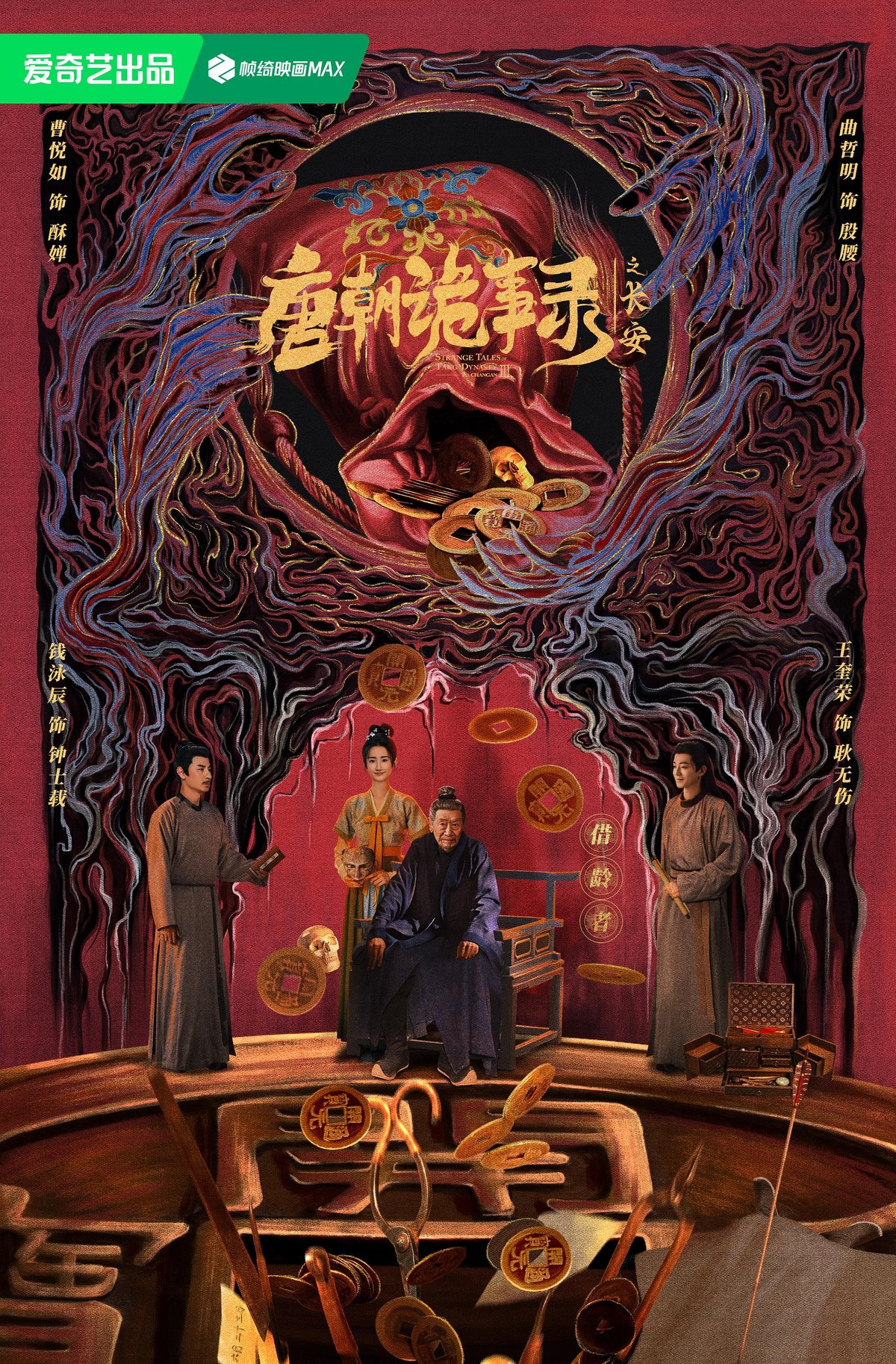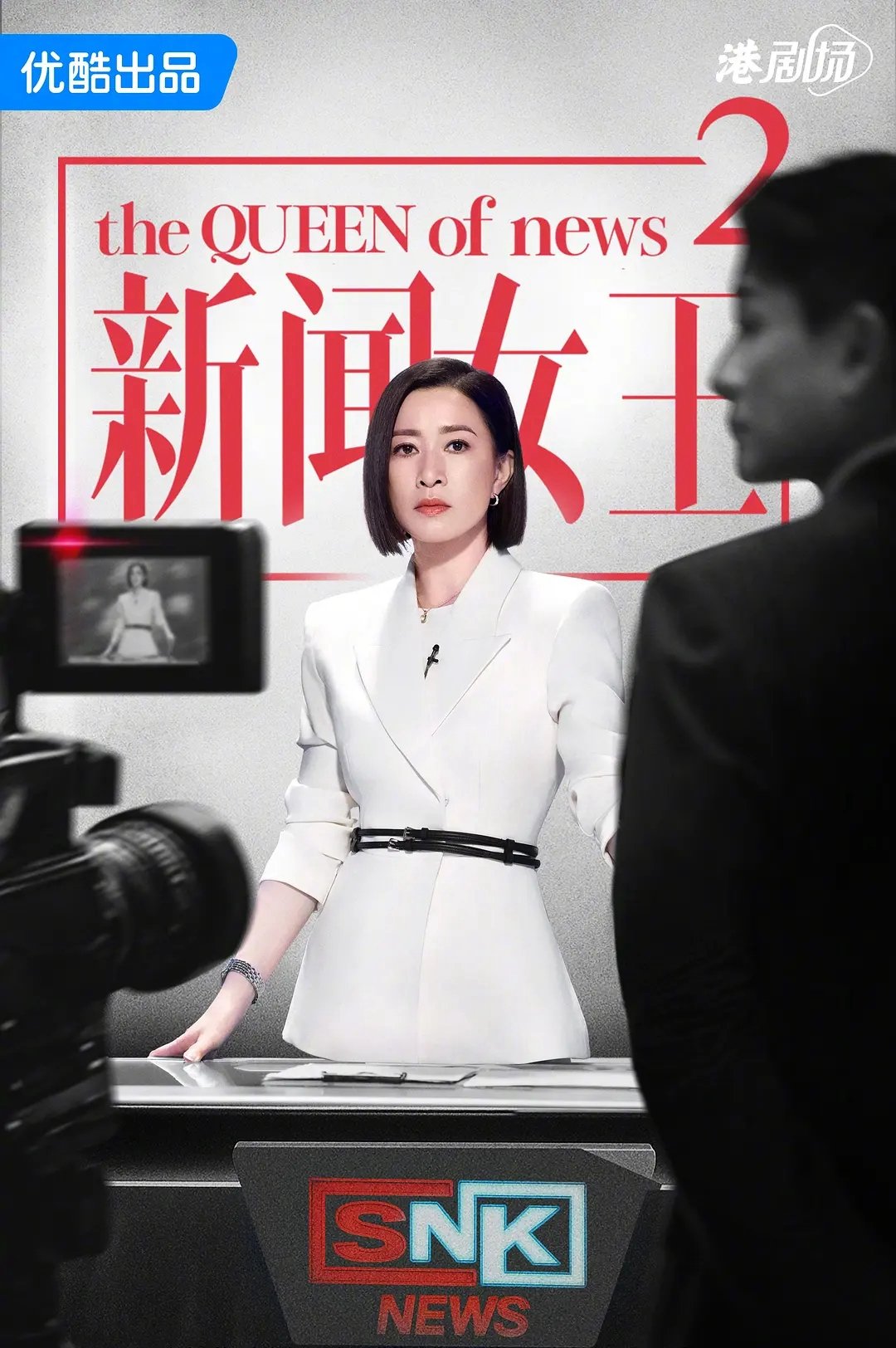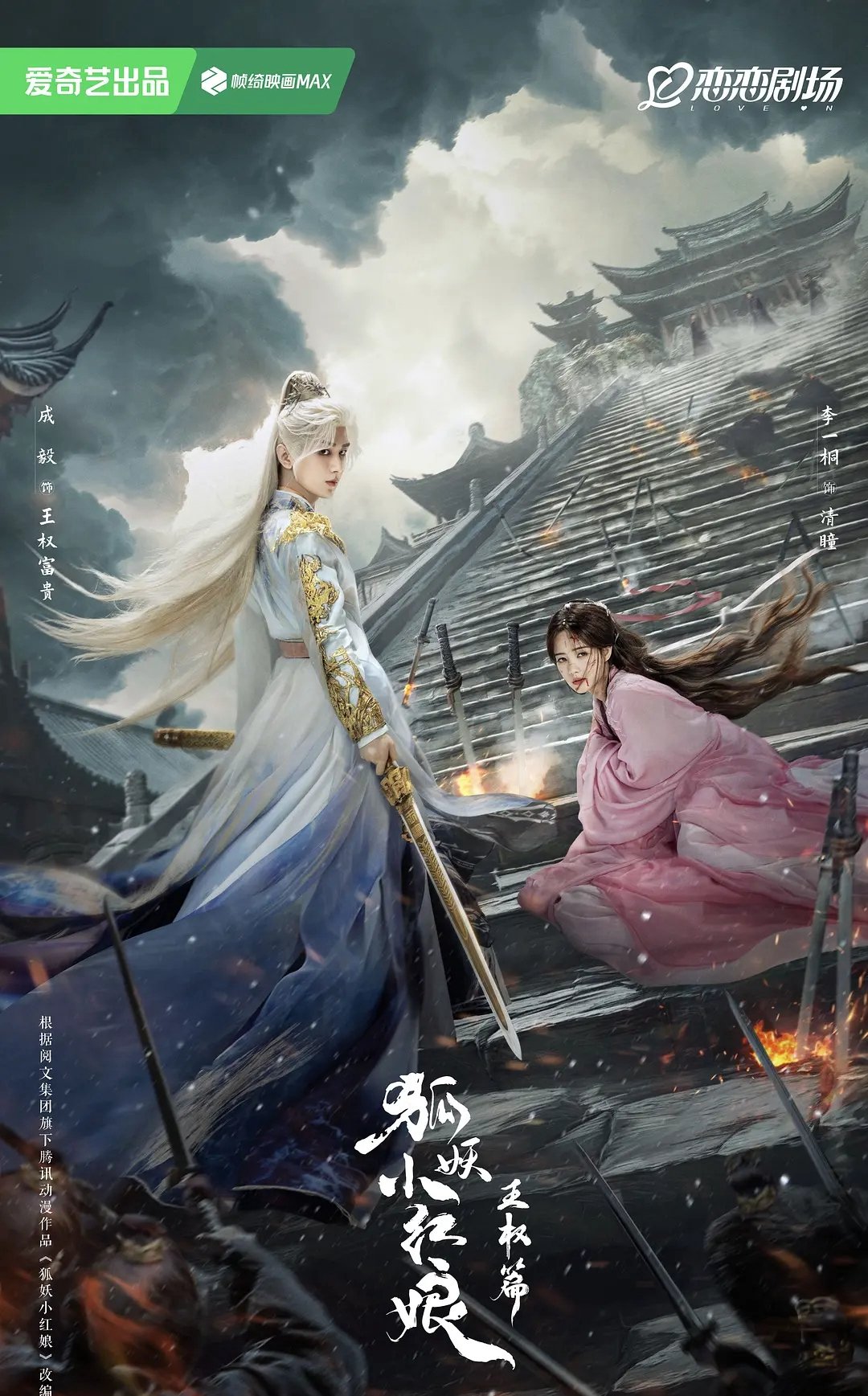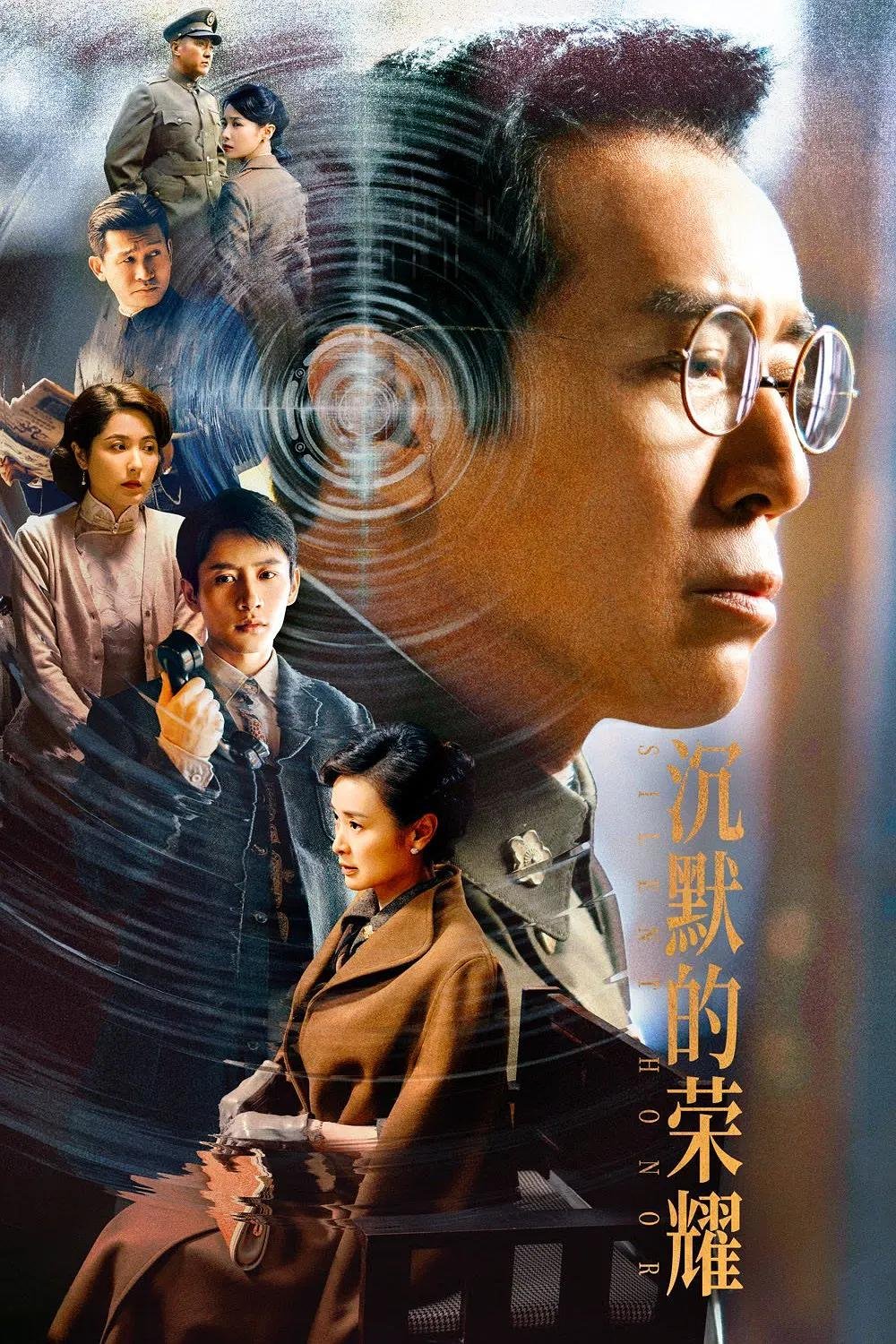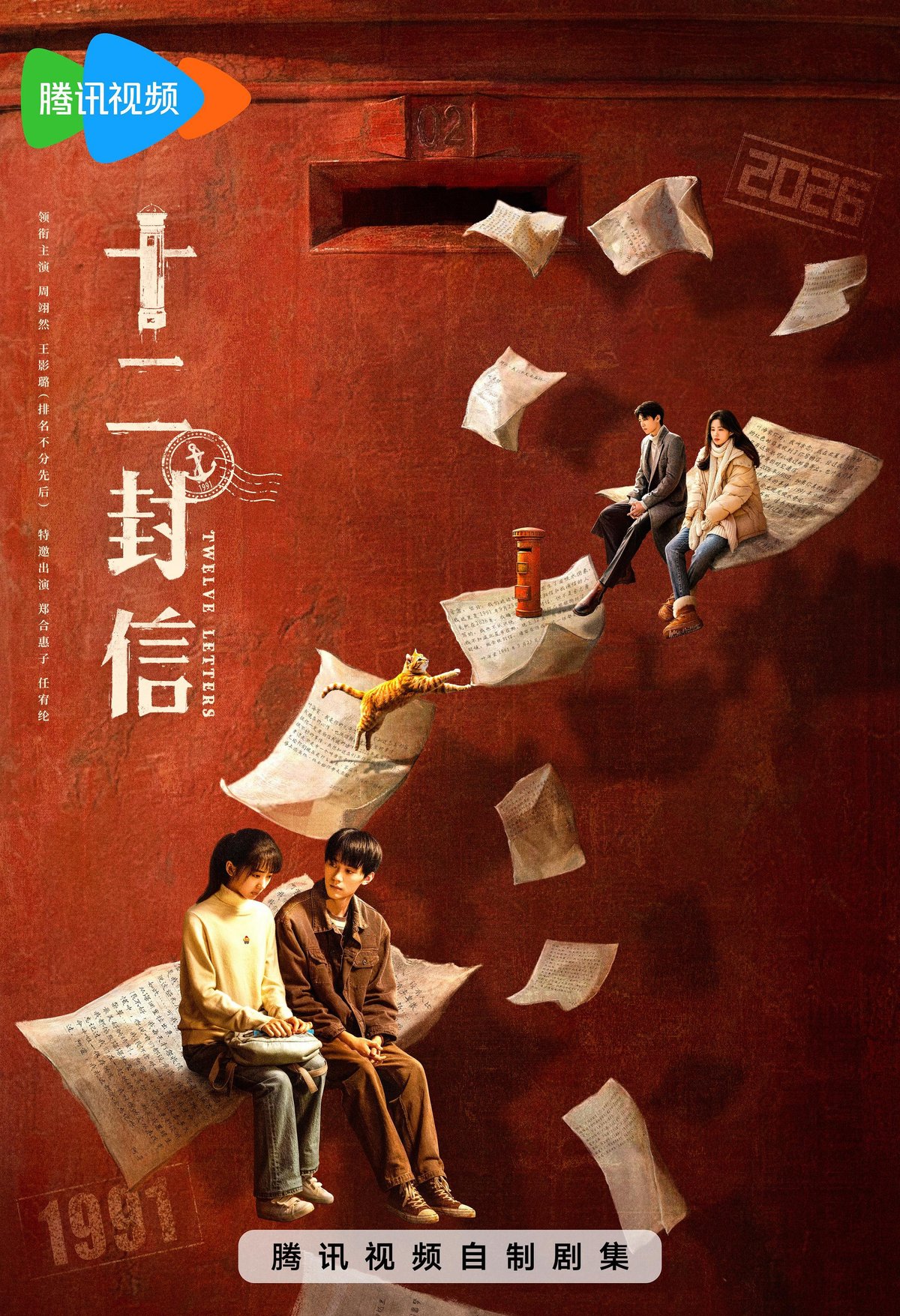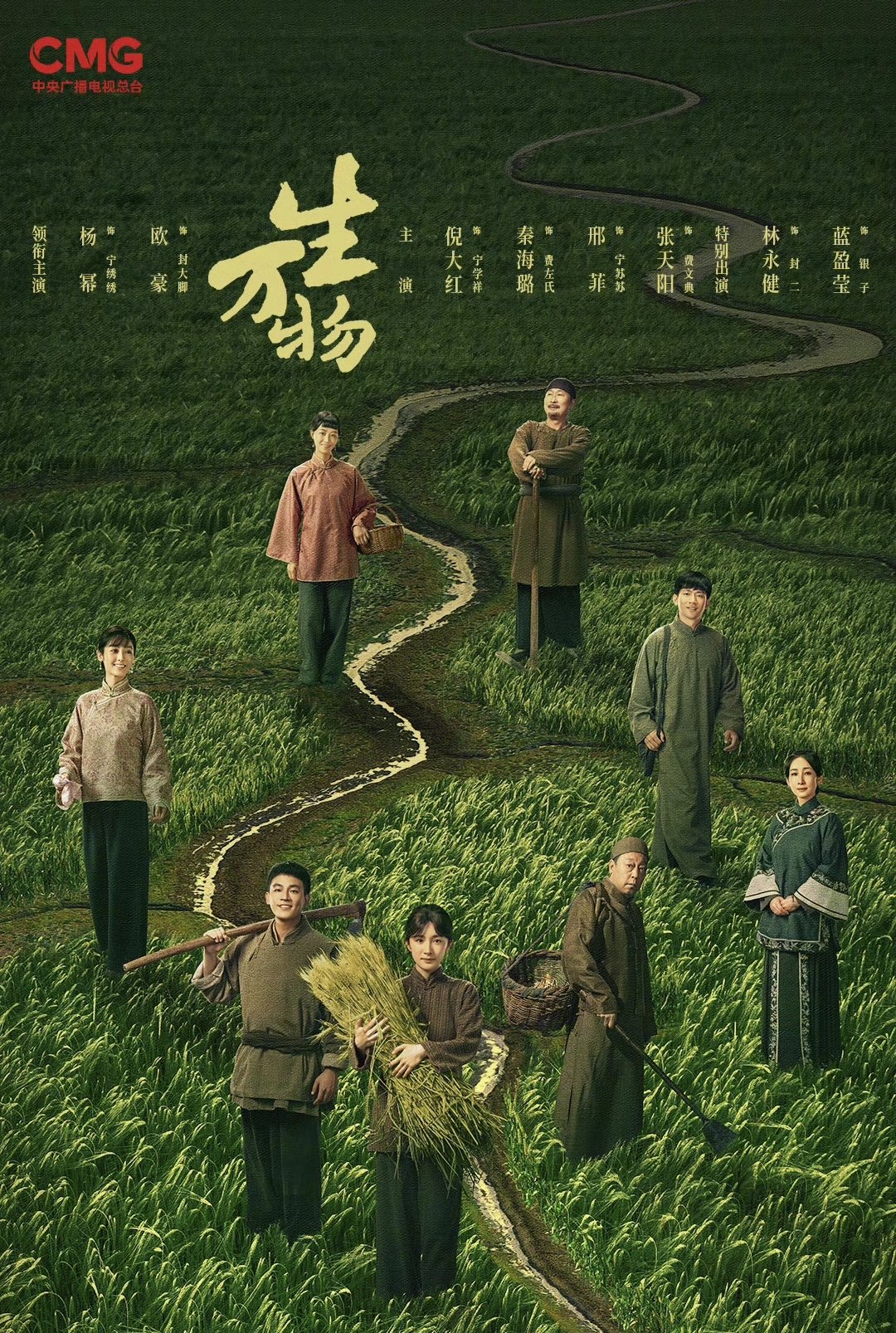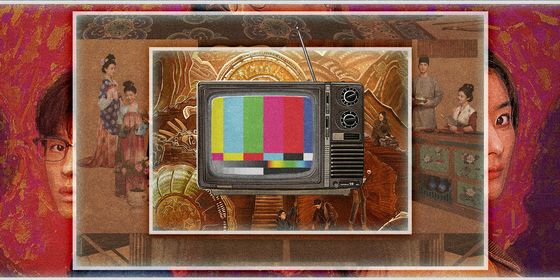From supernatural detective tales from ancient China to the fast-paced newsrooms of modern Hong Kong, here are eight Chinese drama series you shouldn’t miss this season
Winter is here, the days are short, and the air has a nip—it’s prime TV season. If you’re looking for a quick, plot-twisty escape, micro-dramas may deliver. But for those seeking more substance, Chinese drama series in traditional form are more diverse than ever. Whatever your viewing pleasure, we’ve got you covered with our picks to keep you cozy and entertained.
Horror Stories of Tang Dynasty III 唐朝诡事录之长安
Topping Douban’s weekly chart of Chinese dramas at the time of writing with a glowing 8.1 out of 10, Horror Stories of Tang Dynasty III continues the strong ratings streak the series has maintained since 2022.
A historical detective drama with supernatural elements, the season unfolds through several standalone stories inspired by legends and folklore. But at its core, it’s a study of human nature, revealed through imperial court power struggles that resonate even without the eerie, uncanny elements.
Set in the Tang dynasty (618 – 907), the series was brought to life by a production team that went to great lengths to recreate an authentic look and feel, poring over historical records and consulting experts. They even built full-scale sets of the Tang capital, Chang’an, and an underground ghost market, with every floor tile pattern faithfully replicated from relics preserved in the Shaanxi History Museum.
Exploring the latest trends in Chinese dramas:
- High Stakes in Short Takes: China’s Booming Micro-Drama Business
- China’s Small-Screen Scene-Stealers of 2025 (So Far)
- Why 1980s Hong Kong Novels Still Dominate Chinese Screens
The show has also been praised for its brisk, engaging storytelling—covering eight cases across 40 episodes—and for sticking with its original cast, rather than adding big-name celebrities after the success of previous seasons. For anyone craving a detective drama with authentic ancient Chinese flair, the show is currently airing and available on iQiyi and YouTube.
The Queen of News II 新闻女王2
Picking up where the widely popular and acclaimed first season of 2023 left off, The Queen of News II follows news anchor Wen Huixin (played by Charmaine Sheh), who leaves Hong Kong’s top TV station to become a freelance journalist before joining a start-up online media outlet. Many office workers, even those outside the journalism field, find the show’s dialogue deeply relatable. Lines like “People in top positions don’t need to understand journalism—understanding people is enough” and “Whether you do a lot or a little, it’s all the same” have become viral memes online, echoing the everyday realities of workplaces where effort goes unrecognized, and leadership feels detached.
Like the first season, the Hong Kong TV series continues to explore the tension between running a business and upholding journalistic ethics. The storyline has kept up with industry trends, tackling issues such as the rise of self-media competing for attention, AI-generated fake news flooding the internet, and what happens to a star reporter’s credibility once they leave the network that made them famous. Though some viewers have questioned whether the show is trying to cover too much within just 25 episodes, touching on a wide range of hot topics, from aging apartment safety and cyberbullying to food safety and even mother-daughter relationships.
Still, by focusing squarely on women’s career paths in the newsroom, the show stands out from other contemporary dramas that devote much of their runtime to romance.
Adrift in Love 人浮于爱
Released late October, Taiwan drama Adrift in Love has been hailed as a real romance for modern adults, thanks to its candid portrayal of urbanites’ struggles between love and desire, morality and reality, and the complexities of human nature, including its weaknesses such as greed.
The drama follows two interwoven storylines. Zhou Xiaoqi (Ivy Shao), the young girlfriend of a 60-year-old rich businessman whose health is deteriorating, is asked to bear him an heir in exchange for marriage and inheritance. Though she agrees, Zhou finds herself falling for her psychiatrist, who is already in a relationship. Meanwhile, Pan Xiaotong (Vivian Sung), a struggling employee at the businessman’s company, weighed down by her mother’s gambling debts, workplace mistreatment, and a cheating boyfriend, becomes a “contracted girlfriend” to a wealthy young man. As a pregnant Zhou navigates the complexities of her love entanglements, Pan develops real feelings for her “contracted” boyfriend, who is torn by fear of defying his domineering mother.
Despite positive reviews and a 7.6 Douban rating, many viewers favor Zhou’s storyline, with its flawed yet realistic characters, over the more traditional “princess-and-Cinderella” plot of Pan.
Sword and Beloved 天地剑心
Adapted from the popular 2012 comic series Fox Spirit Matchmaker, starring hot young stars Cheng Yi and Li Yitong, the fantasy romance has been highly anticipated.
In a world where demons and humans are enemies, peace depends on a fragile pact made not long ago, even as hostility and prejudice run rampant. Wangquan Fugui (Cheng Yi) is the heir to a prestigious demon-slaying clan. Trained from childhood as the family’s greatest weapon, he knows nothing but discipline, duty, and the relentless hunt for monsters. His world begins to expand when he meets Qingtong (Li Yitong), a spider demon who approaches him as a spy but grows to care for him. Through her, Wangquan starts to question the rigid doctrines of his clan, pursue peace beyond endless combat, and gradually shed his long-held prejudices against demons.
Many viewers praised the show for its deeper reflection on caring for all creatures, rather than following the familiar path of a forbidden romance. Yet despite the original comic’s impressive 8.9 rating on Douban, the drama, touted as a potential powerhouse of China’s romance fantasy, has garnered only a 6. Critics point to its heavy reliance on celebrity casting, deviations from the original story, and abrupt rewrites of key character relationships, echoing common pitfalls of recent big IP adaptations and sparking backlash among long-time fans.
The Hunt 命悬一生
The suspense drama opens with migrant worker Ni Xiangdong (Huang Xuan) delivering a wooden chest to an abandoned mountain hut under the cover of night as a strange favor for a close friend. After finishing the job, he calls his friend—only to find him lying lifeless inside the very chest he just transported. A sudden camera flash from outside the hut terrifies Ni even more. He dashes out, chasing whoever might be trying to frame him, but soon loses their trail in the rugged mountain terrain. The wail of a police siren shatters the silence as Ni rushes to move the chest out of the area. When he stops and opens it again, the body is gone, replaced by a bruised security guard who has been tied up. And that’s only the first 10 minutes—the 16-episode series only gets twistier from there, brimming with friendship betrayed, love triangles, murder plots, buried bodies, and mysterious identities woven into decades of secrets and deception.
The latest hit from iQIYI’s “Light On Theater” crime series brand, the drama has earned a solid 7.7 rating on Douban. It has been praised for its grounded portrayal of migrant workers and the fringe underworld they inhabit in the 2000s. None of the show’s characters fits neatly into a simple good-or-evil category, as poverty, domestic abuse, and harsh circumstances push some into quiet desperation, where violence can seem like the only irreversible choice.
Silent Honor 沉默的荣耀
Silent Honor is the latest addition to the popular spy drama genre, one of China’s most-watched types of TV shows. Since 2006, spy dramas have boomed, portraying the covert and often brutal intelligence battles between the Communist Party of China (CPC) and the Kuomintang (KMT) as they vied for control of the nation. Notable examples include Qianfu (“Undercover,” 2008) and The Disguiser (2014), both phenomenal hits with over 300,000 comments under their entries on Douban. Premiered in late September on CCTV-8, the Central Television’s drama channel, Silent Honor recounts the true story of General Wu Shi (吴石), a high-ranking KMT official who secretly served as a CPC undercover agent. Dubbed “Secret Agent No. 1,” Wu gathered crucial military intelligence between 1947 and 1949—both before and after the KMT’s retreat to Taiwan. But he was betrayed by a defector, arrested, and executed in 1950. Following the drama’s broadcast, Wu Shi’s former residence in Fuzhou, a previously little-known site in the southeastern city, has seen a surge in visitors. One particularly poignant scene in the series depicts Wu longing for the pineapple cake his wife made while he was imprisoned, inspiring many contemporary visitors to leave pineapple cakes at the site in his memory.
Twelve Letters 十二封信
If you’re tired of the streamlined, fluffy romance often dubbed “industrial saccharin (工业糖精),” Twelve Letters offers a refreshing alternative. It delivers both heart-fluttering sweetness and gut-wrenching angst, along with a moving portrayal of family bonds. Blending fantasy with crime suspense, the series centers on a mysterious red pillar post box that connects two timelines more than 30 years apart. In 2026, Yu Nian (Zhenghe Huizi) searches for her missing father and crosses paths with Shen Cheng (Ren Youlun), whose mother also seems to have vanished without a trace. Back in 1991, small-town teenager Ye Haitang (Wang Yinglu), trapped in a broken family with a gambling, abusive father, forms an unlikely friendship with Tang Yixun (Zhou Yiran), a young gang member who becomes her protector. It soon becomes clear that the troubled young pair in 1991 are the very parents missing in 2026. But what drove the young lovers apart 30 years later—and what explains their disappearance in the present day? Produced and streamed by Tencent, this 12-episode series has been praised for its nostalgic depiction of the 1990s, thoughtful scriptwriting, and especially its open ending.
This Thriving Land 生万物
Adapted from Tenderness and Determination, winner of the 2001 People’s Literature Award, the rural drama follows three families across two generations in a Shandong village, exploring their intertwined fates with the farmland during the turbulent era from the 1920s to 40s, marked by rampant banditry and Japan’s invasion.
The story opens with heroine Ning Xiuxiu (Yang Mi) being kidnapped on her wedding day by bandits demanding a ransom. Her father, despite being the richest man in the village, refuses to sell any of his land to secure her release. With the help of peasant Feng Dajiao (Ou Hao), Xiuxiu escapes the next day. When she returns home, she discovers that her father has married off her younger sister in her place. Furious and disappointed, she cuts ties with her family and marries her rescuer, Dajiao.
Struggles for survival and battles over land have persisted through the years. Meanwhile, Xiuxiu has endured the hardships and stigma of her kidnapping, building a better life for her family and inspiring other women to take greater control of their own lives.
Rated 7.2 on Douban, the series was praised for highlighting ordinary people and women’s perseverance, though some critics noted that any happy endings for the female characters still largely rely on their male saviors.







